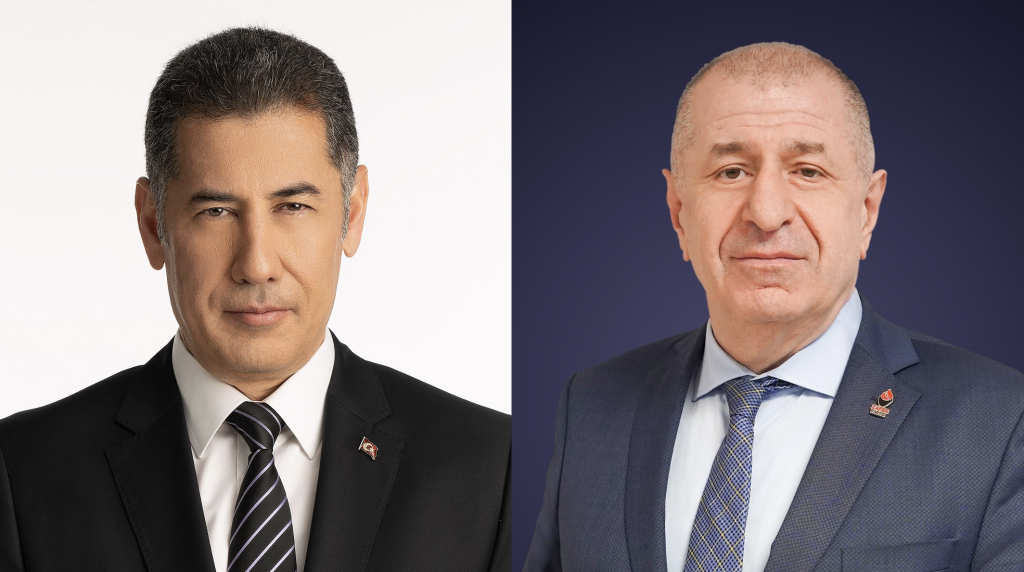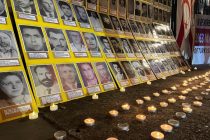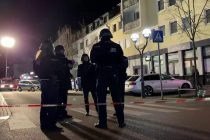Two far-right politicians, Sinan Oğan and Ümit Özdağ, started the Presidential Election as allies. Now, they turn Kingmaker, but each one is backing a different side.
The first round of the Turkish Presidential Elections on 14 May ended with unexpected results. The political surveys proved accurate in one sense – no one candidate would poll enough votes to win outright in the first round. However, they got the order of the top two badly wrong, predicting the main opposition candidate Kemal Kılıçdaroğlu would be comfortably ahead of Recep Tayyip Erdoğan.
At the start of the race, four candidates had vied to be the President of the Republic of Turkiye. One, Muharrem İnce, dropped out three days before election day – too late to remove his name from the ballot papers and for Turkish citizens living abroad who had already cast their votes.
The Supreme Election Council of Türkiye (YSK) gave the final results as follows:
- Recep Tayyip Erdoğan: 49.52%
- Kemal Kılıçdaroğlu: 44.88%
- Sinan Oğan: 5.17%
- Muharrem İnce 0.43%
The turnout for the first round was a record breaking 87.04% of Turkiye’s 64 million electorate. As no candidate received more than half of the votes cast, the top two candidates, Erdoğan and Kılıçdaroğlu, go into a second round on Sunday 28 May.
Sinan Oğan’s pre-election conditions
If he had been standing as a Parliamentary candidate, Sinan Oğan would have failed the 7% election threshold to become an MP. However, his 5% in the first round of the presidential race has turned him into a “Kingmaker”: whichever of the two candidates his supporters back in the runoff will secure sufficient votes for them to win.
Both sides have tried to court the nationalist, former National Movement Party (MHP) MP, who has Azerbaijani roots and had stood under the hard right ATA (Ancestral) Alliance.
Oğan’s foremost conditions to both Kılıçdaroğlu and Erdoğan for his public support in round 2 of the presidential elections were:
- To reaffirm the immutability of the first four Articles of the Turkish Constitution and the 66th Article, which defines Turkishness.
- To authorise the return of 13 million refugees and fugitives living in Türkiye to their homeland by a certain time frame.
- To relentlessly fight against the FETÖ, PKK and Hezbollah terrorist organisations.
- To confirm that any concessions made to HDP (Peoples’ Democratic Party) and Hüda Par, the political extensions of PKK and Hezbollah respectively, for their support during the elections will be dropped.
Both Oğan and Ümit Özdağ, leader of the far-right Zafer (Victory) Party and co-founder of the ultra-nationalist, Kemalist ATA Alliance, had multiple meetings with both sides following the first round, Due to profound differences on who to support in the run-off, it was announced that the ATA Alliance was disbanding.
“We have a strong friendship with Ümit Bey, but our decision does not have to be the same,” said Oğan, confirming their split on this matter.
On May 19, only hours after stating he would not “negotiate” with Oğan in his interview with CNN, President Erdoğan held a meeting with the Kingmaker at his Dolmabahçe work office. Three days later, Oğan officially declared his support for the president and his People’s Alliance (Cumhur İttifakı) for round 2.
Cumhurbaşkanı Erdoğan ve Sinan Oğan. pic.twitter.com/057irDgLI9
— Pusholder (@pusholder) May 19, 2023
“Mr. Sinan Oğan’s statement is his own political choice. This statement does not represent or bind the Zafer Party,” said Ümit Özdağ following Oğan’s unexpected decision.
Following Oğan’s lead, former ATA Alliance members Ülkem and the Türkiye Alliance Party also chose to support President Erdoğan, whilst Adalet Party declared its support for the challenger Kılıçdaroğlu.
Oğan’s decision came as a huge disappointment for many voters across Turkiye, as those that voted for him were expecting the alliance to remain neutral or to gravitate towards the ideologically closer to Kılıçdaroğlu’s Nation Alliance (Millet İttifakı).
Known for the slogan “We cannot promise paradise, but we will close the gates of hell”, it was confusing to many why Oğan would take Erdoğan’s side, when the Turkish president is so adamant on not sending refugees back to Syria. This is even more baffling given that resolving the ‘refugee problem’ was the core selling point for the ATA Alliance and that, under Erdoğan’s tenure there has been a sustained attack on Turkiye’s secular state.
The Turkish public are no strangers to conspiracy theories, and one quickly went viral on social media, claiming that Oğan was in fact a trojan horse due to his catchphrase, “Stick to the plan…”. It is reminiscent of the words and contrary actions of Devlet Bahçeli, the veteran leader of the far-right MHP, six years ago.
At the time, Bahçeli was against Erdoğan, yet he did a 180-degree U-turn in the run-up to the 2017 Turkish Constitutional Referendum to change the country’s governance to a presidential system. The MHP leader went on to establishing the People’s Alliance with AKP.
Zafer Party founding member Hasan Basri Akşener’s tweets claiming these events were “a chain of tactics” under Özdağ’s control definitely added fuel to these theories. However, when asked about this “plan” when he appeared on Halk TV, Özdağ denied the theory stating, “No, there is no plan. At least nothing in this process.”
In recent days, in a live interview with CNN Türk and Channel D, President Erdoğan mentioned how Oğan was already involved his election campaign: “Right now, he (Oğan) has begun to work almost like a member of the People’s Alliance.”
State broadcaster TRT’s blatant pro-Erdoğan bias
After declaring his support for Erdoğan, Oğan made his first television appearance on TRT News. As a state broadcaster, TRT is obliged to broadcast news about the campaigns of each of the presidential candidates and to give them airtime on its news programmes.
Despite these election rules governing the Turkish state broadcaster, Oğan received zero airtime during the first round of the election, only making an appearance on the channel after he pledged his allegiance to Erdoğan. Oğan even held a protest in front of the TRT headquarters back in April to highlight and condemn the media embargo imposed on him.
Stats on live appearances by key party leaders on TRT during 41 days of election campaigning
Günün anlam ve önemine binaen! pic.twitter.com/ZJj3Q9rCxy
— İlhan Taşcı (@ilhantasci) May 25, 2023
Dr Sinan Oğan protests TRT for its media embargo on him as a presidential candidate
Bugün medyanın bize uyguladığı ambargoyu kaldırmaları için önce TRT ardından RTÜK ve sonra da Demirören Medya Grubu’na giderek kısa seçim vaatlerini açıkladım, durumu protesto ettiğimi bildirdim. Sonrasında CNN Türk Ankara temsilcisi ile görüştüm ve maalesef ki çok daha verimli… pic.twitter.com/LD94df56eq
— Dr. Sinan Oğan (@DrSinanOgan) April 25, 2023
It should be noted, Muharrem İnce also had zero appearances on TRT, while Kılıçdaroğlu had just 32 minutes, according to RTÜK Supreme Council member İlhan Taşcı. In contrast, Erdoğan’s election rallies, news and interviews received 48 hours of airtime on TRT.
Media coverage is only one example of how undemocratic the Turkish elections have been so far. The state broadcaster has even indulged in carrying slanderous montages of Kılıçdaroğlu, picturing him with the PKK – propaganda that has also been screened at Erdoğan rallies – to millions of viewers nationwide, further plummeting the reputation of TRT.
Having finally been given the opportunity to appear on TRT News, Oğan explained what he had discussed in his meeting with the President. He said that all the policies ATA Alliance stood for were discussed and none were opposed by the President, although he conceded there was no official document signed by the two men regarding these principles.
Oğan pointed out how Kılıçdaroğlu stood no chance in winning his support after the Nation Alliance again failed to win a majority in the Turkish Parliament. He argued that it was better to be part of the People’s Alliance, because if the presidency and parliament held different political stances, it could lead to instability or even a crisis of rule in the country.
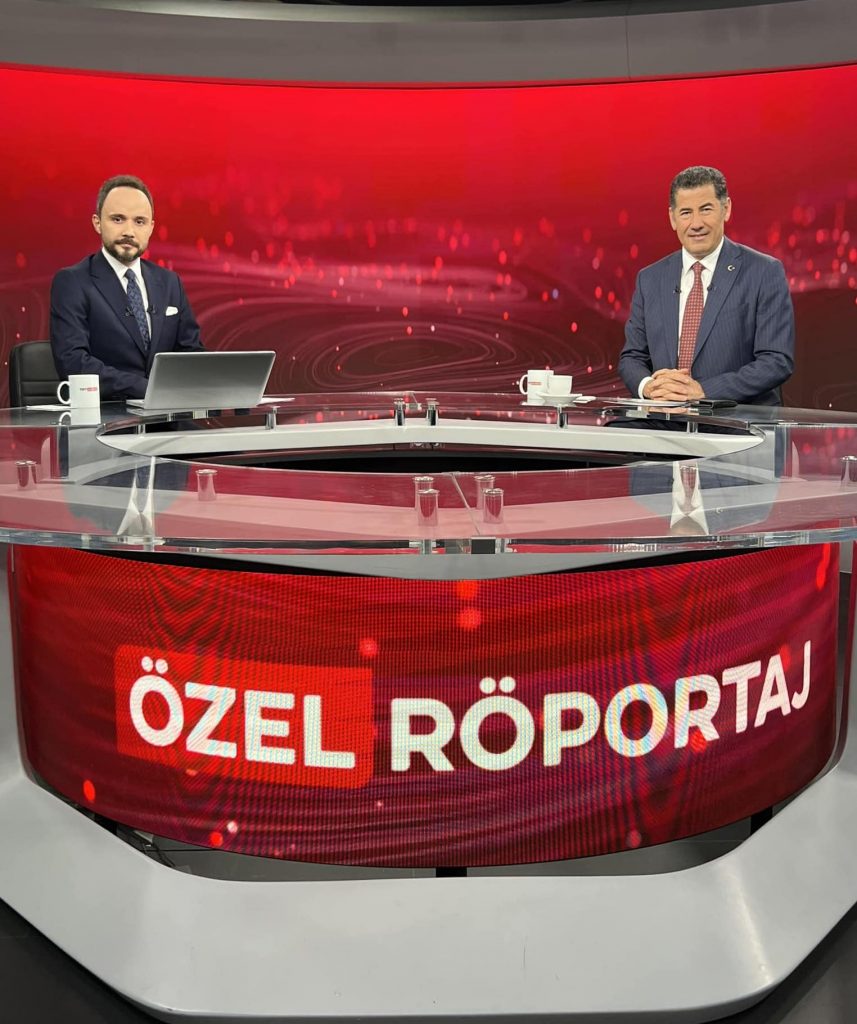
Another huge factor in Oğan siding with Erdoğan was the unofficial pact between pro-Kurdish HDP and Kılıçdaroğlu for the elections. For many Turks, HDP is synonymous with the PKK terror group, which seeks autonomy for Turkiye’s Kurds in the east of the country. The political party has routinely failed to condemn the armed group’s terrorist activities, while its senior officials have attended the funerals of PKK members killed during armed conflict with the Turkish army.
According to ultra-nationalist Oğan, HDP’s main goal is to establish a “PKKistan” in Syria – breakaway state on Turkiye’s borders that is run by the PKK and its Syrian offshoot the YPG. Oğan claims his candidacy successfully prevented this from turning into a reality.
Strikingly, Oğan completely steered clear of making any remarks about Hüda Par, which also wants Kurds to have their own state Kurdistan party. Hüda Par members have been convicted of murder and terrorism, yet the party is part of Erdoğan’s People’s Alliance and its candidates appeared on AKP MP candidacy lists, enabling four Hüda Par politicians to the new Parliament.
Hüda Par’s stated policies jar with what Oğan claims to stand for; the pro-Kurdish party are on record for wanting to change the first four articles of the Turkish Constitution and to dilute the Turkish character of Turkiye.
As a Turanist, Oğan is very focused on strengthening the Turkic world that stretches from Turkiye and Azerbaijan through Central Asia to Kazakhstan. His former political ally, Özdağ, has homed in on the refugee and fugitive problem, which he claims is a huge drain on Türkiye’s economy.
Ümit Özdağ: the other Kingmaker
Although Oğan has been dubbed the “kingmaker” in these presidential elections, he did not secure 5.17% on his own. His 2,831,239 million votes came from a myriad of sources, including supporters of the Zafer Party, and Muharrem İnce’s Memleket Party as well as disaffected supporters of MHP, AKP, CHP and İYİ Party.
While some of this inhomogeneous group of voters will follow Oğan to back Erdoğan in round 2, a sizeable number will not.
The Zafer Party received 1,529,119 million votes in parliamentary elections, or 2.23% of the popular vote. Although it was not enough to secure any MPs, it does give Ümit Özdağ the edge when it comes to claims of being a Kingmaker too.
On May 24, Özdağ announced his support for Kılıçdaroğlu in the run-off. The various nationalist parties that stood in the Parliamentary elections, including MHP, IYI [Good] and Zafer, secured over 23% of all votes cast in 2023.
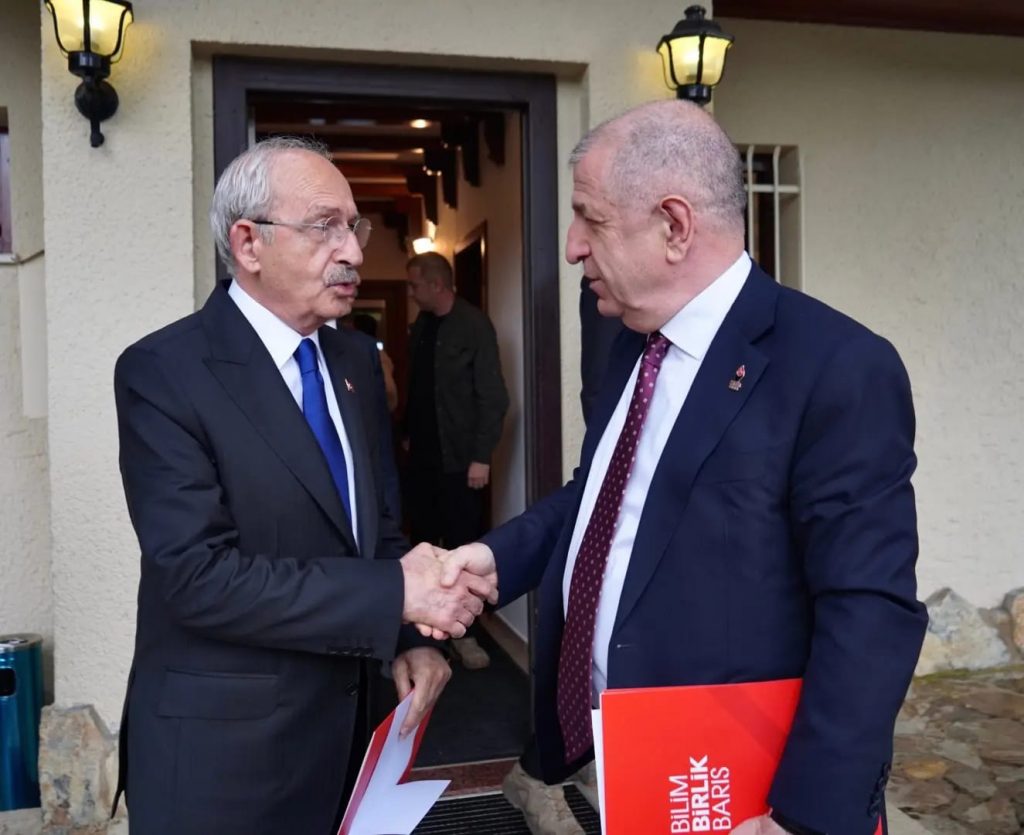
The results from 14 May are a clear message to Kılıçdaroğlu that neither he nor his patriotic Republican People’s Party (CHP) had managed to make a significant dent in the support base of the nationalists. Unsurprisingly, for round 2, Kılıçdaroğlu has adopted a more nationalist stance, making more strident speeches and statements regarding the refugee issue and is more assertive in combating terrorist organisations like the PKK and Hezbollah.
Özdağ’s stance on national issues mirrored those of Sinan Oğan. In order to extend his backing to Kılıçdaroğlu, the Zafer Party leader insisted on a signed protocol with CHP and their fellow Nation Alliance confirming seven key policy areas.
1) The first four articles of the Turkish Constitution and Article 66, which concerns the definition and context of Turkish citizenship, will be preserved.
2) The national-unitary-secular character of the Turkish state, established in 1923, will not be compromised in any way. These values will always be adhered to.
3) All asylum seekers and fugitives, especially Syrians, will be sent back to their country of origin within 1 year at the latest.
4) All terrorist organisations, especially FETÖ, PKK and Daesh, will be fought ‘effectively and resolutely’. The practice of appointing state officials, instead of local administrators whose links to terrorism are proven by legal evidence, will continue in accordance with the law. Terrorism will be fought, and not negotiated. No political and legal arrangements with these entities targeting Türkiye’s national and unitary state structure will be allowed.
5) For all personnel appointments made to departments of the government, it will be ensured that these are merit-based, and not merely rewards for political or party loyalty.
6) All corruption will be dealt effectively within the legal framework.
7) It has been agreed to that the state should be transparent and open with its citizens.
After announcing his backing of Kılıçdaroğlu, Özdağ said: “Look, we’re not supporting Kemal Bey in a fanatical way. We support Kemal Bey here because he has accepted the project that will save Türkiye.”
Özdağ has also made it clear that should the challenger win, he wants to replace Süleyman Soylu as the Minister of the Interior, which would allow him to handle the refugee problem directly. This possibility alone has made many nationalists more inclined to vote for Kılıçdaroğlu, although such a thing hasn’t been formally discussed as of now.
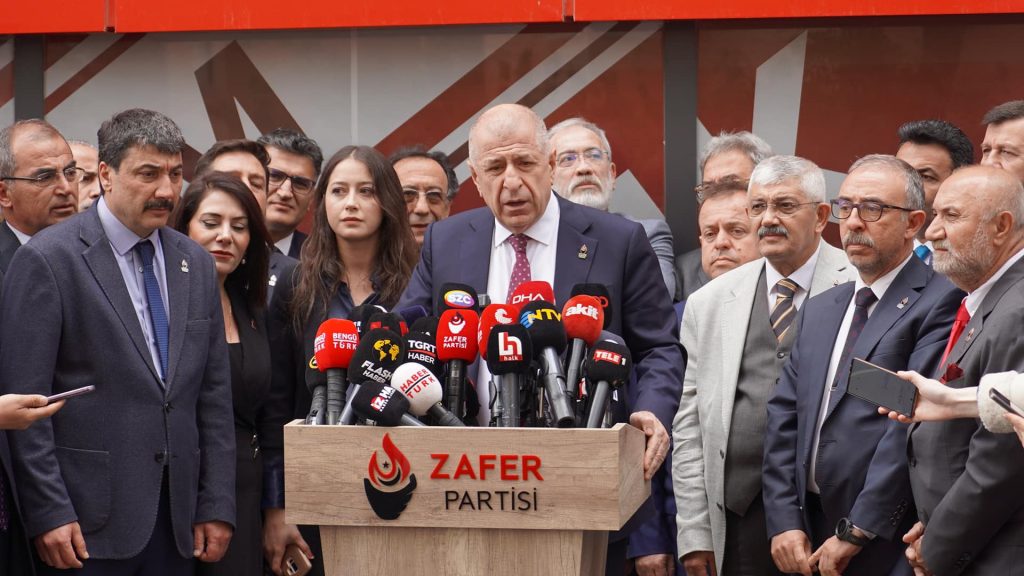
It should be noted that HDP and its political successor, YSP (Green Left Party), which secured 8.83% of the popular vote in the Parliamentary elections, didn’t stand a presidential candidate in these elections, and have encouraged their supporters to vote for Kılıçdaroğlu instead. Yet many of these partisans have voiced their disapproval of Article 4 of the Constitution, which forbids changes to the first three articles concerning the nature, characteristics and territory of the Turkish state.
Given the significant discontent with the Erdoğan government over the economy, democracy, women’s and minority rights and more, CHP’s share of vote has made minimal advances, some of which may be down to its strategic alliance with the Table of Six parties. CHP won 25.35% of the Parliamentary vote in these elections, up by less than 3% since 2018. In contrast, Erdoğan’s AKP (Justice and Development Party) won 35.63% of the vote. It means Kılıçdaroğlu is far more dependent on external alliances to help him win the Presidency than Erdoğan.
Özdağ, who’s seen as a “racist” and “fascist” by many in and outside of Turkiye, given his hard-line views on ethnic minorities and refugees, could deter some people from voting for a candidate that would allow him to become Minister of the Interior.
But for now, both YSP and Zafer Party remain steadfast in their support for Kılıçdaroğlu’s candidacy, urging their supporters to vote to finally overthrow the “one-man regime” of Erdoğan.
As for the pivotal final presidential election set to take place on Sunday, 28 May, President Erdoğan clearly has the upper hand. His People’s Alliance has secured the biggest share of vote in both the Presidential and Parliamentary Elections. His campaign continues to have significantly greater visibility given its control of both government channels and the support of the country’s big media barons.
Where can the challenger gain ground on Erdoğan?
One of the biggest blocs are foreign-born citizens of Turkiye. Kılıçdaroğlu’s anti-immigration policy, pledging to repatriate some 5 million economic migrants and refugees in the next two years, means he has almost certainly ensured most of the votes of these ethnically non-Turkish citizens, particularly Arab and refugee voters whose numbers are thought to exceed 1.5 million, stay with Erdoğan.
This, coupled with Oğan’s support for the president, should comfortably push Erdoğan over the 50% threshold and give him five more years running Turkiye.
The question remains, however, who are ATA Alliance members more likely to follow, Oğan or Özdağ?
If the battle on social media is anything to go by, most ATA supporters seem to be sticking with Özdağ as the more familiar and reliable figure in the nationalist-Kemalist sphere. And if the increase in voter turnout abroad is reflected inside Turkiye too, Kılıçdaroğlu’s efforts to become the 13th President of the Turkish Republic may not be in vain.


